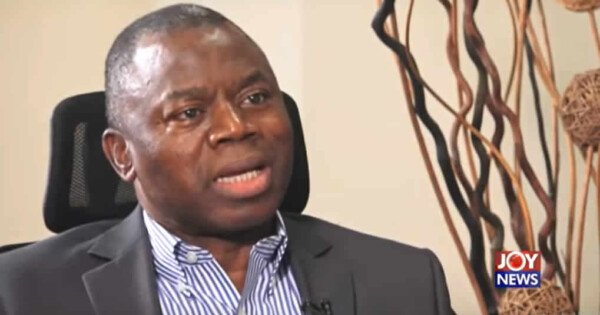Former President of the Ghana Association of Banks, Alhassan Andani, says the banking sector crisis was not systemic but rather an institutional one.
According to him, most of the top players in the banking sector had identified and taken precautionary measures against banks at risk of insolvency long before the Central Bank had raised red flags concerning those banks.
He noted that if those top banks had been unduly exposed to the defaulting banks, the collapse of the defaulting banks would have had a much more resounding effect in the country’s economy.
He stated that the Bank of Ghana should have realized earlier what was going on within the banking scene and taken appropriate measures, however, the BoG continued to provide liquidation to defaulting banks long after most banks had cut credit ties with the unhealthy banks.
Speaking on JoyNews’ PM Express Business Edition, he explained, “Instead of the regulator … stepping in at the right time they were getting liquidity support. But typically the liquidity support from the banking sector clears within the banking sector.
“In the morning there will be a bank that has surplus cash and they know that I can’t use that there’s a bank that has cash needs so you’ll throw within a certain agreed limit and then it clears out the next day, all those are what we do.
“But when you’re cornered, you’re always out there in the market picking up someone will say ‘what’s happening to this bank?’ Then people start to withdraw their [funds]. So at the peer level, certain banks knew that other institutions within that space were not healthy enough and therefore cut off their lines of credit.
“That should have been a signal to the Central Bank. And if you go there for liquidity support number one and come back number two there’s a problem. Somebody should be sitting there helping you to balance your assets and liability.”
He believes the liquidity support should have been stopped to allow the banks go down by themselves.
“Yes, and then we would have had one institution gone and the others would be resolved, instead of trying to condone as many of them as possible then you had such a huge institutional impact. But even then, look at it, none of the top 10/12 banks were impacted because it was not systemic.
“Systemic is where you believe that this bank was healthy and everybody was dealing with them and suddenly they couldn’t meet up. Then the default of one bank will affect a healthy bank because that healthy bank had exposures to the defaulting bank. That’s systemic risk.
“But in the case of what happened in Ghana, there was very little systemic risk because we know those that were already at the bottom ready to go,” he said.
Latest Stories
-
Let’s live peacefully and shame our saboteurs – Savannah executives of NPP, NDC
2 hours -
Reconstruction of Agona-Nkwanta-Tarkwa road 80 per cent complete
2 hours -
Internet penetration: 10.7 million Ghanaians offline – LONDA Report
2 hours -
USC cancels grad ceremony as campus protests against Israel’s war in Gaza continue
2 hours -
Harvey Weinstein’s 2020 rape conviction overturned in New York
2 hours -
US Supreme Court divided on whether Trump can be prosecuted
3 hours -
There’s enough justification for Affirmative Action Bill to be passed – Minka-Premo
3 hours -
Don’t allow people to manipulate you into vaccine hesitancy – Dr Adipa-Adappoe
3 hours -
Suspend implementation of Planting for Food and Jobs 2.0 for 2024 – Stakeholders
3 hours -
Parkinson’s disease no longer confined to the elderly – Public Health Physician, Dr Momodou Cham warns
3 hours -
Persons living with Parkinson’s disease appeal for support as they face stigmatization
3 hours -
36-year-old-trader sentenced for stealing employer’s money
3 hours -
9 signs you’re falling in love with someone who thoroughly enjoys emotional manipulation
3 hours -
Catholic Diocese of Keta Akatsi hosts Parkinson’s support group meeting
3 hours -
Wa Naa appeals to Akufo-Addo to audit state lands in Wa
4 hours

